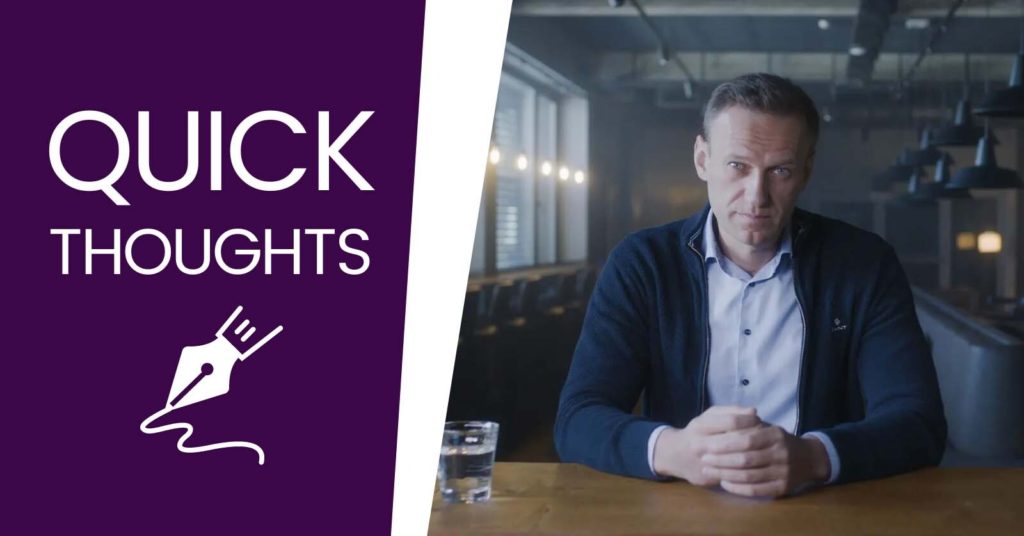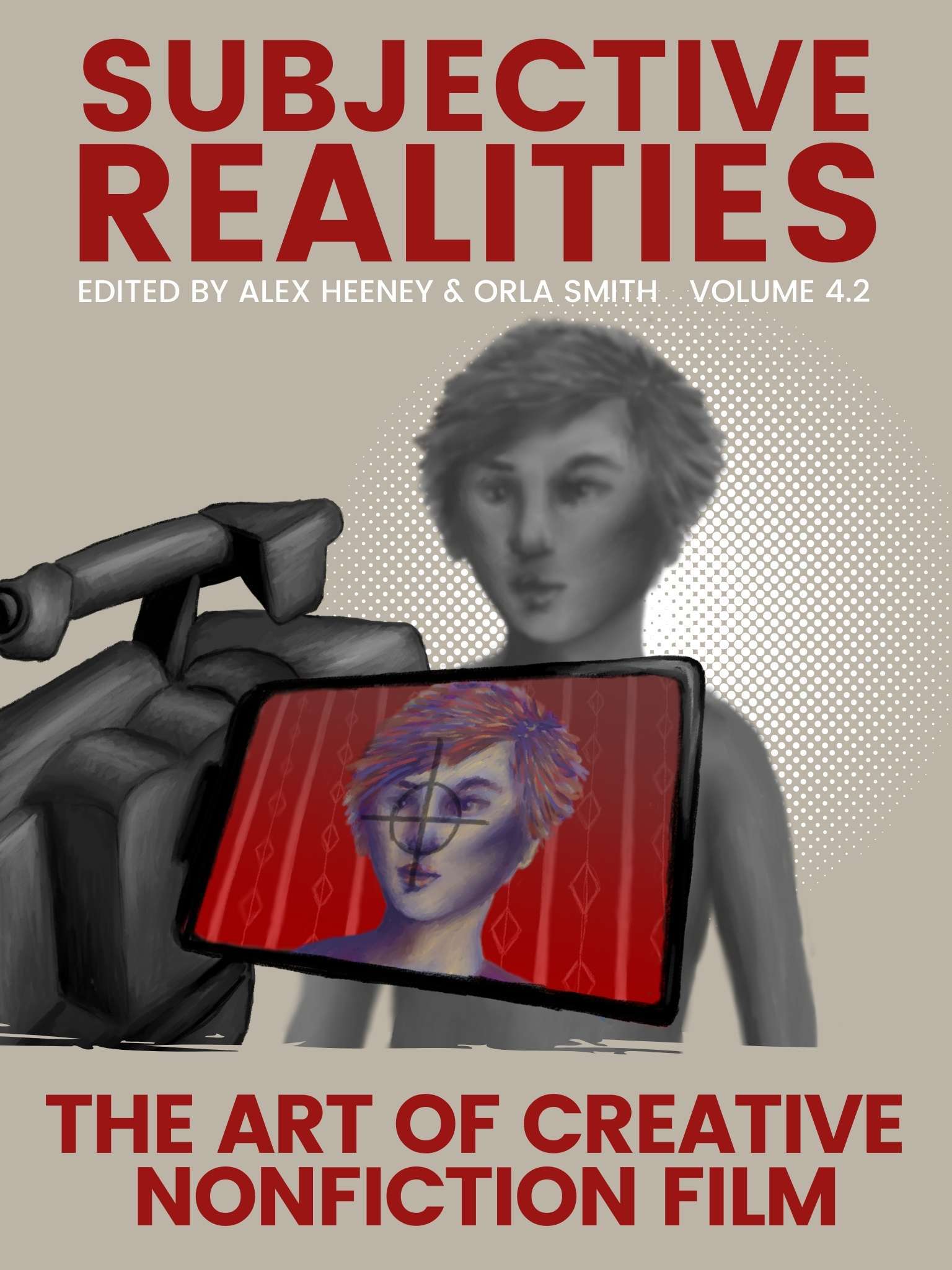Daniel Roher’s documentary Navalny is an entertaining and thrilling film about the Russian politician who challenged Putin and paid the price.
The film Navalny won the Grand Jury Prize and Audience Prize at Sundance, before recently screening at the SF Film Festival and HotDocs. It’s now streaming on CNN+ in Canada/US and BBC iPlayer in the UK.

Discover one film you didn’t know you needed:
Not in the zeitgeist. Not pushed by streamers.
But still easy to find — and worth sitting with.
And a guide to help you do just that.
Midway through Navalny, the titular Alexei makes a TikTok video of himself standing in front of what looks like a “murder investigation” wall — lots of photos connected in a web — with the caption “when you investigate your own murder” and the soundtrack of “How Bizarre” by OMC. It’s pretty indicative of the way the film plays with how Navalny’s story seems so ‘bizarre’ it could only have happened in a movie, with a wink and a nod to the audience that, guess what, now it is.
Most of the film takes place in Germany where Navalny exiled himself to recover from an attempted murder via poison, and he spends the film investigating — with the help of some journalists and non-profits — who did it and how. More specifically, they get damning proof that Putin was behind it. This makes for a pretty entertaining documentary plot, and the sharp editing by Maya Daisy Hawke and Langdon Page keep us feeling like we’re watching a murder mystery instead of a horrifying breakdown of democracy in action.
Navalny is built as a sort of character study around Navalny, the only real challenger to Putin in a future election (were he not currently locked up in Russia). Navalny immediately recalls Snowden — another documentary that showed an investigation (or its results) in process of major geo-political importance — which was also told like a thriller. In Snowden, much of the film’s pleasure — aside from the obvious major information leak — was trying to figure out what makes Snowden tick. He wasn’t someone in power so judging him didn’t really seem to matter.
Navalny is a more complicated figure, especially given his historic ties to neo-Nazis and his potential to be a world leader. Navalny rides on Navalny’s charisma, reveling in the access to the man without really critiquing him or pushing him on hard questions, like why he was okay with his white supremacist ties. Because the film is very narrowly focused on Navalny’s murder investigation (and the short-term aftermath), it also fails to engage with his privilege and whether or why he is a complicated person to root for. It occasionally feels like the film (and occasionally Navalny himself) is arguing, if Putin is the supervillain, who cares what Navalny is really like?
Instead, filmmaker Daniel Roher also meticulously keeps every reference in the film when someone exclaims, “it’s just like a movie!” which feels more self-congratulatory about his access than critical or thoughtful about Navalny’s politics or what his story could mean for world politics. It’s a deliberately populist choice that makes the film a surprisingly fun and entertaining watch — mixed with its feeling of ‘important themes’, I’m not surprised it won the US Documentary Audience Award at Sundance, even if I think Fire of Love was the better film. (Fire of Love did win the Audience Award at Visions du Réel, for what it’s worth.)
You could be missing out on opportunities to watch films like Navalny at virtual cinemas, VOD, and festivals.
Subscribe to the Seventh Row newsletter to stay in the know.
Subscribers to our newsletter get an email every Friday which details great new streaming options in Canada, the US, and the UK.


